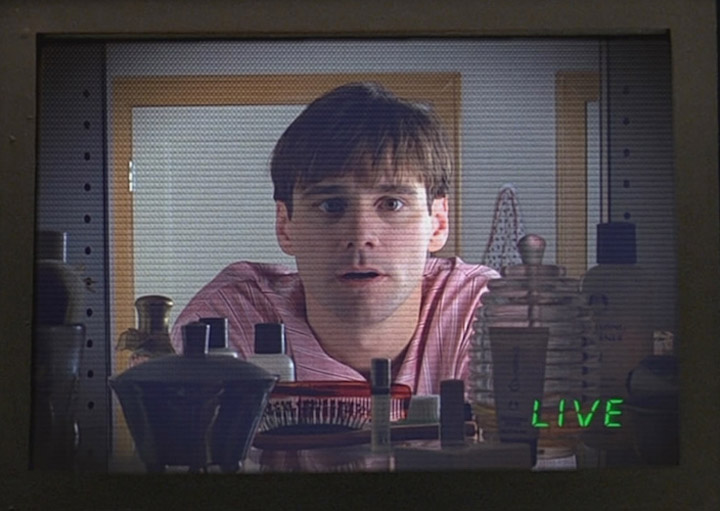People With “The Truman Show Delusion”
It’s normal for people to think of their lives as storylines (plot twist: co-worker brings pizza bagels to share with the office), but there’s a phenomenon happening that is much more extreme. Psychologists are seeing patients with what’s called The Truman Show Delusion, in which they believe that they’re the unwilling star of a secret reality show, and their every move is being monitored and broadcast.
A few examples of how the delusion has played out:
One man caused a disturbance at a federal building, where he had gone to demand asylum from his televised life.
Another climbed the Statue of Liberty, believing that he’d be reunited with his high school girlfriend at the top, and finally be released from the “show.”
A newspaper reporter was hospitalized as he believed his colleagues were faking TV, print and Internet news “for his amusement.”
A man went to New York to check whether the World Trade Center had actually fallen, believing 9/11 to be an elaborate plot twist in his personal storyline.
These are all real-life scenarios documented by psychiatrists Dr. Joel Gold and Dr. Ian Gold, two brothers who coined The Truman Show Delusion and co-wrote Suspicious Minds: How Culture Shapes Madness, a book that explores the issue. While not officially listed in the Diagnostic and Statistical Manual of the American Psychiatric Association, the category of delusion has gained interest in a culture of Snapchat lifecasting, NSA surveillance and Kardashians everywhere. Redditors discussed the phenomenon in Reddit’s Today I Learned community.
The delusion, of course, is named after The Truman Show, the 1998 film depicting a man named Truman (played Jim Carrey) whose entire life is the subject of a live, 24-hour-a-day television show — and he doesn’t know it.
Joel Gold discusses The Truman Show Delusion here:
The Gold brothers argue that the scientific idea that mental illness is nothing but a brain dysfunction needs to be dropped, and the role of one’s cultural and social surroundings should be zoomed in on. “That a theory of mental illness should make reference to the world outside the brain is no more surprising than that the theory of cancer has to make reference to cigarette smoke,” they write.
That cultural setting includes technology. One study claims that Facebook causes “psychotic episodes and delusions.” Another showed the rise of narcissistic personality traits among college students, which can be fueled by tools such as Facebook, Twitter, Pinterest and Instagram.
Suspicious Minds reminds people that anyone can experience delusional impulses at times, prompted by feelings of stress or insecurity. (And let’s admit it—after watching The Truman Show, who didn’t have a gnawing feeling that they were being watched?) But those whose daily lives are affected by delusions should talk to a doctor.





Leave a Reply